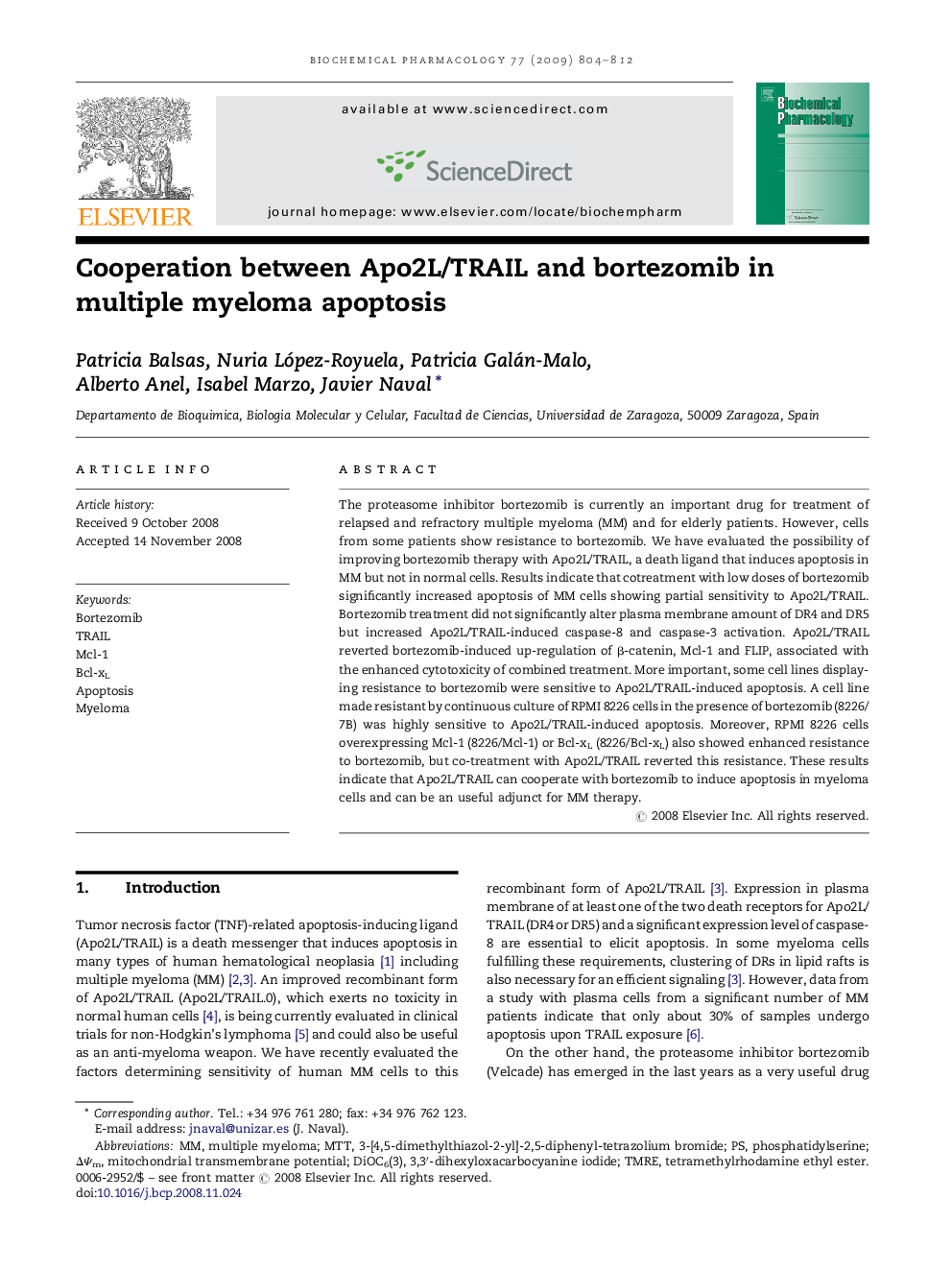| Article ID | Journal | Published Year | Pages | File Type |
|---|---|---|---|---|
| 2514911 | Biochemical Pharmacology | 2009 | 9 Pages |
The proteasome inhibitor bortezomib is currently an important drug for treatment of relapsed and refractory multiple myeloma (MM) and for elderly patients. However, cells from some patients show resistance to bortezomib. We have evaluated the possibility of improving bortezomib therapy with Apo2L/TRAIL, a death ligand that induces apoptosis in MM but not in normal cells. Results indicate that cotreatment with low doses of bortezomib significantly increased apoptosis of MM cells showing partial sensitivity to Apo2L/TRAIL. Bortezomib treatment did not significantly alter plasma membrane amount of DR4 and DR5 but increased Apo2L/TRAIL-induced caspase-8 and caspase-3 activation. Apo2L/TRAIL reverted bortezomib-induced up-regulation of β-catenin, Mcl-1 and FLIP, associated with the enhanced cytotoxicity of combined treatment. More important, some cell lines displaying resistance to bortezomib were sensitive to Apo2L/TRAIL-induced apoptosis. A cell line made resistant by continuous culture of RPMI 8226 cells in the presence of bortezomib (8226/7B) was highly sensitive to Apo2L/TRAIL-induced apoptosis. Moreover, RPMI 8226 cells overexpressing Mcl-1 (8226/Mcl-1) or Bcl-xL (8226/Bcl-xL) also showed enhanced resistance to bortezomib, but co-treatment with Apo2L/TRAIL reverted this resistance. These results indicate that Apo2L/TRAIL can cooperate with bortezomib to induce apoptosis in myeloma cells and can be an useful adjunct for MM therapy.
